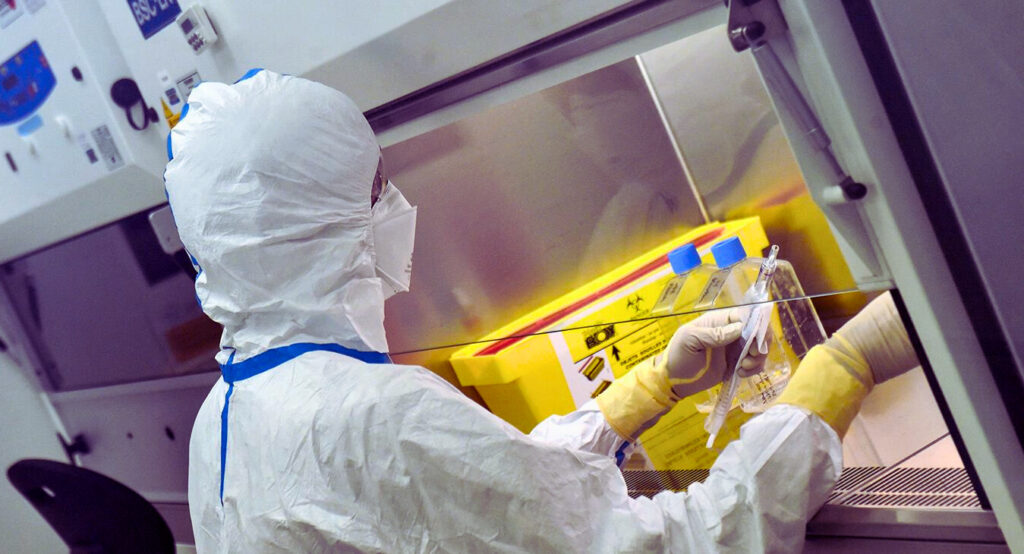
🧬 A groundbreaking discovery by UC Davis scientists in 2025 is reshaping our understanding of cancer vulnerability in humans. The team has identified a genetic variant missing in primates, which may explain why humans are more susceptible to various cancers compared to our closest evolutionary relatives.
https://pagead2.googlesyndication.com/pagead/js/adsbygoogle.js?client=ca-pub-7787437288479224
🔍 The Scientific Breakthrough: What Did UC Davis Discover?
Scientists from the UC Davis Genome Center and Department of Evolutionary Biology compared human DNA with that of chimpanzees, gorillas, and other primates. They found that humans lack a key protective gene variant, which in other primates helps regulate abnormal cell growth and DNA repair — critical factors in preventing Carcinoma.
This gene variant, believed to have been lost during human evolution approximately 2 million years ago, could be a missing link in understanding why humans suffer from significantly higher rates of Carcinoma despite medical advancements.
UK Healthcare’s Digital Revolution: NHS to Prescribe Apps, Online Therapy & AI Cancer Screening
🧫 What Role Does This Gene Variant Play?
The identified gene variant is associated with:
- DNA damage repair: Preventing mutations during cell replication.
- Cell cycle regulation: Stopping uncontrolled cell growth.
- Inflammation control: Minimizing chronic inflammation, which is linked to tumor formation.

In primates, these functions work more effectively, potentially shielding them from the high Carcinoma rates seen in human populations.
🌍 Evolutionary Trade-offs: Did Intelligence Cost Us Our Health?
The UC Davis team speculates that as humans evolved:
- We developed larger brains, which required more energy and frequent cell turnover.
- This high energy demand could have favored the loss of certain energy-consuming genetic safeguards against cancer.
- Our longer lifespan compared to primates also increases Carcinoma risk, as cancer is primarily a disease of aging cells.
Evolution seems to have made a trade-off between cognitive advancement and biological vulnerability.
https://www.booking.com/Share-wjMfFLA
📊 The Cancer Gap: Humans vs. Primates
| Species | Average Lifespan | Documented Cancer Cases |
|---|---|---|
| Humans | 70–80 years | High |
| Chimpanzees | 40–50 years | Very Rare |
| Gorillas | 35–50 years | Rare |
| Orangutans | 40–50 years | Very Rare |
Despite similar genetic makeup, Carcinoma cases in chimpanzees and gorillas are exponentially lower than in humans.
Visit Kaziranga National Park – The Kingdom of the One-Horned Rhino

🏥 Implications for Modern Medicine
This discovery opens new doors for:
- Targeted cancer therapies: By mimicking the protective gene variant found in primates.
- Genetic engineering: Future possibilities of reintroducing this variant in human cells.
- Preventive screening: Identifying individuals at higher cancer risk due to variations in this gene.
It could also help scientists develop more accurate animal models for cancer research, as existing models often fail to replicate human Carcinoma mechanisms.
🌐 What’s Next in the Research?
The UC Davis team plans to:
- Conduct CRISPR experiments to introduce this gene variant into human cells in the lab.
- Study whether this variant can reverse cancerous mutations in vitro.
- Collaborate with cancer institutes worldwide to develop therapies based on this evolutionary insight.
You can follow the research updates on the UC Davis Research News page.
🤝 Future Global Research Collaboration
Following this study, UC Davis scientists aim to work with:
- The National Cancer Institute (NCI), USA
- The Wellcome Sanger Institute, UK
- Japan’s National Cancer Center
- Indian Council of Medical Research (ICMR)
Such global partnerships could speed up the development of gene therapies, clinical trials, and global Carcinoma prevention programs.
🧠 A Wake-Up Call for Evolutionary Medicine
This discovery also highlights the importance of evolutionary medicine, a growing field that examines how our evolutionary past shapes modern diseases. As humans strive for longer lifespans and healthier lives, understanding our biological limitations will be key to developing more effective personalized treatments and preventive strategies for future generations.
🔎 Conclusion: Rewriting Carcinoma Origin Story
This breakthrough challenges the notion that Carcinoma is purely a modern disease caused by lifestyle or environment. Instead, it suggests our genetic history plays a major role in our Carcinoma risk.
While we may not be able to reverse evolution, understanding these genetic losses brings us closer to preventing and curing Carcinoma more effectively.
